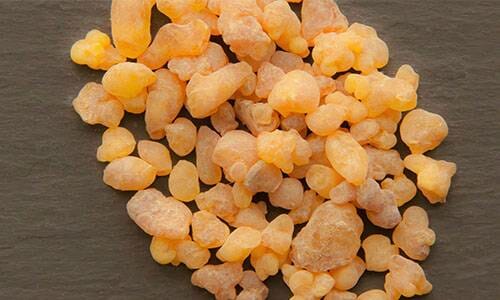

Unsaturated polyester resins are generally linear polymer compounds with ester bonds and unsaturated double bonds formed by condensation polymerization of unsaturated dibasic acid diols or saturated dibasic acid unsaturated diols.
Usually, the polyesterification polycondensation reaction is carried out at 190-220°C until the expected acid value (or viscosity) is reached.
After the polyesterification polycondensation reaction is completed, a certain amount of vinyl monomer is added while hot to form a viscous liquid, such a polymer solution is called unsaturated polyester resin.
Brief introduction of raw materials of unsaturated polyester resin
A kind of chemical raw material, it is often used to thicken and solidify the surface of an object. When it is used, it is like painting, layer by layer, and the curing process releases organic waste gas.
Unsaturated polyester resin is one of the most commonly used thermosetting resins. It is a linear polymer formed by polycondensation of a saturated dibasic acid, unsaturated dibasic acid, and diol, which is diluted by crosslinking monomer or active solvent. The resin solution with a certain viscosity referred to as UPR.
Performance characteristics of unsaturated polyester resin
Excellent process performance
This is the biggest advantage of unsaturated polyester resin. It can be cured at room temperature, formed under normal pressure, and has flexible process performance. It is especially suitable for large-scale and on-site manufacturing of FRP products.
After curing, the overall performance of the resin is good, and the mechanical properties are slightly lower than epoxy resin but better than phenolic resin.
Corrosion resistance, electrical properties, and flame retardancy can be met by selecting appropriate grades of resin. The resin is light in color and can be made into transparent products.
Many varieties
Compared with other resins, there will be more varieties, wide adaptation, and lower prices.
The disadvantage is that the storage period is short.
Physical and chemical properties of unsaturated polyester resin
Physical properties
The relative density of unsaturated polyester resin is about 1.11 to 1.20, and the volume shrinkage rate during curing is relatively large. Some physical properties of the cured resin are as follows:
- Heat resistance.
The heat distortion temperature of most unsaturated polyester resins is 50-60°C, and some resins with good heat resistance can reach 120°C. The red thermal expansion coefficient α1 is (130~150)×10-6℃. - Mechanical properties
Unsaturated polyester resin has high tensile, bending, and compressive strength. - Chemical resistance.
Unsaturated polyester resin has good resistance to water, dilute acid, and dilute alkali, and poor resistance to organic solvents. At the same time, the chemical resistance of the resin can vary greatly depending on its chemical structure and geometric switch. - Dielectric properties.
The dielectric properties of the unsaturated polyacid resin are good.
Chemical nature
Unsaturated polyester is a linear polymer compound with multifunctional groups. It has polyester chain bonds and unsaturated double bonds on its backbone and carboxyl groups and hydroxyl groups at both ends of the macromolecular chain.
The double bond on the main chain can undergo a copolymerization and crosslinking reaction with the vinyl monomer so that the unsaturated polyester resin changes from a soluble and soluble state to an insoluble and insoluble state.
The ester bond on the main chain can undergo a hydrolysis reaction, and acid or base can accelerate the reaction. If it is copolymerized and cross-linked with styrene, the hydrolysis reaction can be greatly reduced.
In an acid medium, the hydrolysis is reversible and incomplete, so polyester can withstand the erosion of acid medium; in alkaline medium, due to the formation of resonance stable carboxylate anion, hydrolysis becomes irreversible, so polyester is alkali-resistant Poor sex.
The carboxyl group at the end of the polyester chain can react with alkaline earth metal oxides or hydroxides [such as MgO, CaO, Ca(OH)2, etc.] to extend the molecular chain of the unsaturated polyester and eventually form a complex.
The molecular chain extension can make the initial viscosity of 0.1-1.0 Pa·s viscous liquid resin, and the viscosity will increase to 103 Pa·s or more in a short time until it becomes a non-flowing, non-sticky similar gel.
When the resin is in this state, it is not cross-linked, it can still be dissolved in a suitable solvent, and it has good fluidity when heated.

